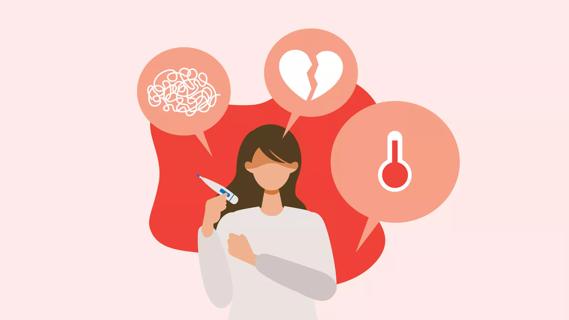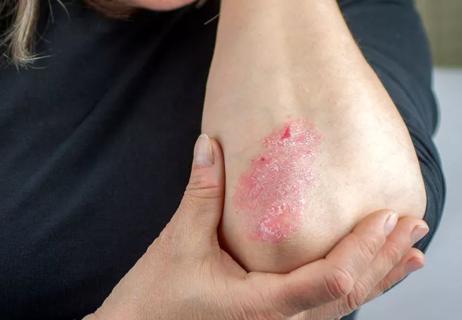Getting outside, eating a healthy diet, taking up journaling, listening to music — even cuddling a pet — can provide stress relief

We could all use a little less stress in our lives, right?
Advertisement
Cleveland Clinic is a non-profit academic medical center. Advertising on our site helps support our mission. We do not endorse non-Cleveland Clinic products or services. Policy
From everyday work issues and maintaining relationships, to navigating social engagements and wrangling your kids’ schedules, there’s more than enough stress to go around. Luckily, there are plenty of stress relief techniques out there to choose from.
Clinical psychologist Adam Borland, PsyD, shares tips for how to reduce stress.
Stress serves an important purpose — it enables us to respond quickly to threats and avoid danger. But lengthy exposure to stress may lead to mental health difficulties like anxiety and depression or increased physical health problems such as cardiovascular disease and irritable bowel syndrome (IBS).
“A large body of research suggests that increased stress levels interfere with your ability to deal with physical illness,” shares Dr. Borland. “While no one can avoid all stress, you can work to handle it in healthy ways that increase your potential to recover.”
Here are some ways to relieve stress.
Reaching for a glass of wine to unwind after a stressful day? Some people try to reduce stress by drinking alcohol or eating too much. These actions may seem to help in the moment, but actually may add to stress in the long run.
Too much caffeine can also compound the effects of stress and affect the quality of your sleep. Try to avoid or limit high-sugar foods, soda and simple carbs, too, like cakes and pastries.
Advertisement
So, what should you eat? Consume a healthy, balanced diet (think fresh fruits and vegetables and whole grains). There are a lot of healthy foods that can help reduce your stress, like avocados, chia seeds, dark chocolate, spinach and almonds.
In addition to having physical health benefits, exercise has been shown to provide natural stress relief. Consider noncompetitive aerobic exercise, strengthening with weights or movement activities like yoga or Tai Chi, and set reasonable goals for yourself.
Aerobic exercise has been shown to release endorphins — natural substances that help you feel better and maintain a positive attitude.
Taking a walk outside can also help, whether it’s a quick stroll around the neighborhood or a longer hike. Even consider forest bathing, the practice of immersing yourself in the great outdoors.
Stop to smell the roses, peep at the autumn leaves or watch a gaggle of geese swim around — the idea is to take a moment to appreciate your surroundings. And a dose of vitamin D from the sun can also help alleviate stress levels (just make sure you wear sunscreen).
You’ve probably heard this before, but getting quality sleep is important. Stress gets amplified when you don’t get enough sleep. And we know it can be a vicious cycle: You’re stressed and find yourself tossing and turning, but then, you’re more stressed the next day from your lack of sleep.
If you find yourself too stressed to sleep, consider developing a new pre-bedtime routine, including a long bath or a cup of caffeine-free herbal tea. And planning for tomorrow earlier in your day can help alleviate stress related to what’s to come.
People who use nicotine often refer to it as a stress reliever. But nicotine actually places more stress on your body by increasing physical arousal and reducing blood flow and breathing.
Plus, it can worsen chronic pain. So, if you’re experiencing prolonged tension and body aches, smoking won’t help.
Taking the time to relax every day helps manage stress and protect your body from the effects of stress. You can choose from a variety of techniques, such as deep breathing, guided imagery, progressive muscle relaxation and mindfulness meditation.
Many online and smartphone apps provide guidance on these techniques. Although some require purchase costs, many are available free of charge.
If you’re like most people, your life may be filled with too many demands and too little time. And it can be easy to procrastinate, which can cause chronic stress.
You can free up time by practicing time-management skills like asking for help when it’s appropriate, setting priorities, pacing yourself and reserving time to take care of yourself.
Advertisement
The more your actions reflect your beliefs, the better you’ll feel, no matter how busy your life is. Use your values when choosing your activities.
“Considering the stressful demands and responsibilities we face on a daily basis, it’s important to engage in activities that are in line with our values and speak to us on a personal level,” encourages Dr. Borland.
It’s OK to say “no” to demands on your time and energy that’ll place too much stress on you. You don’t always have to meet the expectations of others.
Learn to set healthy boundaries and focus on your work-life balance.
It’s also OK — and healthy — to realize you can’t be 100% successful at everything all at once. Be mindful of the things you can control and work on accepting the things that you can’t.
If you consider yourself a perfectionist, it can be tough to get over even small mistakes. Try embracing humility and setting realistic deadlines for yourself.
When you’re feeling overwhelmed, remind yourself of what you do well. There are ways you can build a healthy sense of self-esteem.
Stop the negative self-talk and instead use positive self-talk and affirmations to build your confidence, such as “I’m strong enough to handle what’s happening to me right now” or “This situation is difficult, but I have the skills and abilities to deal with it.”
Advertisement
This behavioral technique helps you learn stress reduction skills by providing information about muscle tension, heart rate and other vital signs as you attempt to relax. It’s used to gain control over certain bodily functions that cause tension and physical pain.
Biofeedback is used to help you learn how your body responds in stressful situations, and how to cope better. If a headache, such as a migraine, begins slowly, many people can use biofeedback to stop the attack before it becomes full-blown.
Find yourself mindlessly scrolling through social media? Or sucked into negative news? It may be worth taking a break from your phone.
While it’s important to stay informed of the latest news and developments, the evolving nature of the news can get overwhelming. Find a balance of exposure to news that works for you. And spending lots of time on social media seeing “perfect” lives of others can negatively affect your body image.
Whenever reasonably possible, disconnect physically and mentally. Try stress-relief activities such as playing with puzzles or a board game, doing a treasure hunt, tackling a project, reorganizing something or starting a new book.
It can be easy to avoid others when you’re feeling stressed and not in a great mood. But spending time with or talking to your family and friends can help reduce your stress and get you out of your funk.
Advertisement
Also, consider joining a sports team, a book club or volunteering at a local organization — finding ways to foster social connections can help manage your stress levels and improve your mental health.
Whether it’s belting out tunes to the car radio, singing in the shower or tickling the ivories, music therapy can be a great tool when it comes to reducing your stress.
Try playing some classical music while you work or turn up the volume on your favorite tunes when prepping dinner or folding laundry — doing so can ease your anxiety, lower your heart rate and blood pressure.
Dogs and cats are popular pets, but being around any animal can help reduce your stress levels by decreasing your body’s cortisol production.
Don’t have a pet? Even looking at photos of your friend’s newest puppy can boost all those feel-good emotions. And we’re sure they’d let you have a cuddle or two in real life.
Laughter is the best medicine, right? Whether it’s a giggle or chuckle, getting some laughs in can lower your stress levels — you’ll feel more relaxed and in a better mood.
So, bring on the cat memes, cue up episodes of your favorite comedy or think about something that makes you smile. Even dad jokes (you know you’ve got some at the ready) can help.
Sometimes, we need an outlet for all the thoughts running through our heads. Keeping a journal can be a healthy way to express your emotions.
Consider keeping a gratitude journal. Recognizing and giving thanks for all the positive things in your life can help reset your perspective and improve your stress levels.
There may be a reason you need a bazillion candles. Certain scents like lavender, pine, sweet orange and lemon can have a calming effect — so consider aromatherapy and how essential oils can help you chill out.
And it’s not limited to just essential oils. Whatever scent brings you joy — think the ocean breeze, warm chocolate chip cookies or freshly fallen snow — can help boost your mood. So, lather on that scented body lotion, burn that candle or spritz yourself with body spray.
You may have heard that taking supplements like melatonin, magnesium, ashwagandha, L-theanine and B vitamins can help improve your stress levels.
Dr. Borland says that supplements may help, but more research is needed to fully understand all of their benefits. He stresses the importance of talking to your healthcare provider before adding any supplements into your routine. And remember that supplements aren’t regulated by the U.S. Food and Drug Administration (FDA), so do your homework.
Stress can be a constant in your life, and knowing how to reduce stress and anxiety can be helpful.
But if you’re finding it hard to cope, feel overwhelmed or notice stress-relieving techniques aren’t working, it may be time to talk to your healthcare provider. A mental health specialist may recommend talk therapy or other coping tools, in addition to or beyond the ones we’ve highlighted here, to help you manage your stress levels.
Remember, chronic stress not only affects your mental health, but it can also contribute to a host of health issues.
“As I often remind my patients (and myself for that matter), you’re not being selfish when you prioritize self-care,” reassures Dr. Borland. “In order to be the best version of ourselves, both emotionally and physically, it’s imperative that we monitor and attend to our daily stress levels.”

Sign up for our Health Essentials emails for expert guidance on nutrition, fitness, sleep, skin care and more.
Learn more about our editorial process.
Advertisement

Even small moments of time outdoors can help reduce stress, boost mood and restore a sense of calm

Fill your coping toolbelt with healthy skills like getting outside, writing in a journal, volunteering, laughing or talking with a friend

We all experience some stress from time to time, but chronic stress can contribute to health issues like diabetes and cardiovascular disease

Give these 30+ grocery items a try to help find relief

In response to stress or danger, your brain responds by either defending itself, running away, stopping or reconciling

From nausea, weight gain and eczema, stress can affect your immune system in many ways

Stress hormones trigger cravings in an attempt to keep us safe from danger

From stomachaches and hives to sleepless nights and missed periods, stress can make an impact

Even small moments of time outdoors can help reduce stress, boost mood and restore a sense of calm

A correct prescription helps your eyes see clearly — but as natural changes occur, you may need stronger or different eyeglasses

Both are medical emergencies, but they are very distinct events with different causes